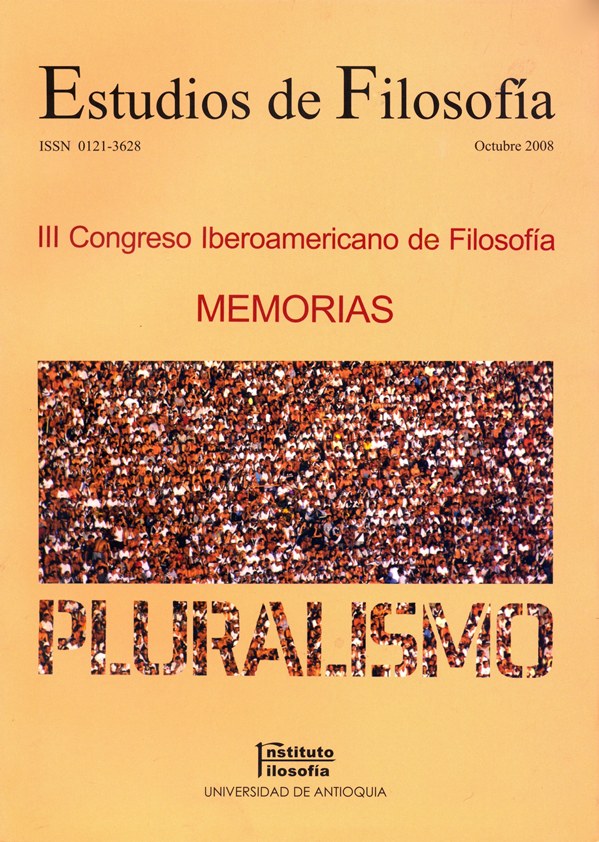Memory in times of war, the sign of an absence
DOI:
https://doi.org/10.17533/udea.ef.12931Keywords:
armed conflict, Colombia, violence, justice, victimsAbstract
I am going to start by quoting Reyes Mate who considers that every thought looks from somewhere, is situated. There is no thought without experience or without your location. This assertion is imperative for contemporary anthropology so concerned with making explicit the place from which it is spoken or written. As an anthropologist dedicated to the study of violence and memory, I want to make explicit the place from which I am going to speak and to whom I intend to question. The horizon from which I make the following considerations is that of the barbarism that has characterized the war in Colombia. I understand by barbarism some atrocious practices such as forced disappearance, torture, individual and collective murder and dismemberment, practices that I have been studying for nearly thirty years. Although my current reflections have as a point of reference the victims of the armed conflict, I do not want to speak conceptually about them, nor do I pretend to speak for them. Rather, I would like to examine the context in which family members and survivors struggle to preserve the memories of violent events that split their lives in two. [Fragment]
Downloads
Downloads
Published
How to Cite
Issue
Section
Categories
License
Copyright (c) 2008 Estudios de Filosofía

This work is licensed under a Creative Commons Attribution-NonCommercial-ShareAlike 4.0 International License.
Authors who publish with this journal agree to the following terms:
1. The Author retains copyright in the Work, where the term "Work" shall include all digital objects that may result in subsequent electronic publication or distribution.
2. Upon acceptance of the Work, the author shall grant to the Publisher the right of first publication of the Work.
3. The Author shall grant to the Publisher a nonexclusive perpetual right and license to publish, archive, and make accessible the Work in whole or in part in all forms of media now or hereafter known under a Creative Commons Attribution-NoCommercia-ShareAlike (CC BY-NC-SA 4.0), or its equivalent, which, for the avoidance of doubt, allows others to copy, distribute, and transmit the Work under the following conditions: (a) Attribution: Other users must attribute the Work in the manner specified by the author as indicated on the journal Web site;(b) Noncommercial: Other users (including Publisher) may not use this Work for commercial purposes;
4. The Author is able to enter into separate, additional contractual arrangements for the nonexclusive distribution of the journal's published version of the Work (e.g., post it to an institutional repository or publish it in a book), as long as there is provided in the document an acknowledgement of its initial publication in this journal;
5. Authors are permitted, and Estudios de Filosofía promotes, to post online the preprint manuscript of the Work in institutional repositories or on their Websites prior to and during the submission process, as it can lead to productive exchanges, as well as earlier and greater citation of published work (see The Effect of Open Access). Any such posting made before acceptance and publication of the Work is expected be updated upon publication to include a reference to the Estudios de Filosofía's assigned URL to the Article and its final published version in Estudios de Filosofía.















